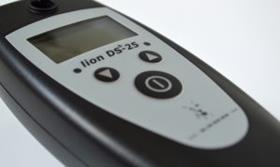Enquiries about in-cab breathalysers have risen sharply since the crash on the M1 involved an HGV driver found to be over the drink-drive limit.
The crash, near Newport Pagnell, resulted in the death of eight out of the 12 minibus passengers after the vehicle collided with two HGVs.
AIM Logistics driver Ryszard Masierak was accused of having 55 micrograms of alcohol per 100ml of breath after the crash (the legal limit is 35 micrograms). He has been charged with causing death by dangerous driving and death by careless driving.
FedEx driver David Wagstaff, from Stoke-on-Trent, was charged with causing death by dangerous driving and causing serious injury by dangerous driving.
Following the crash, Alcolock GB, a supplier of in-cab breathalysers, said enquiries from hauliers for its Alcolock DS10 breathalyser, pictured, have surged. The device, which retails at £1,000, connects to the vehicle immobiliser and disables the vehicle if the driver is over the limit.
Alcolock GB operational director Diane Whittock told MT: “We had a spike in enquiries from hauliers following the crash – mainly from firms that have shown an interest and are now going to order it. We find that happens a lot –people tend to bury their heads in the sand and when something like this happens they decide it is money well spent.”

Whittock said sales to hauliers have increased by 25% over the past 12 months, but added: “That’s not enough. Only 10% of our customers are from the haulage sector, and those that do fit our device tend to be the larger hauliers. But you can’t put a price on reputation.”
Road transport solicitor Tim Norris at Ashtons Legal said using breathalysers could help firms in the event of an accident.
“Although there is no duty of care on operators to install devices, they could lessen the likelihood of prosecution by the Health and Safety Executive and they show the operator takes the issue seriously,” he said.
However, RHA policy director Duncan Buchanan questioned the effectiveness of in-cab breathalysers. “What if a driver over the limit got someone else to blow into the device? The best approach is zero tolerance.”
Using the device could also undermine staff morale, Laura Newton, road transport solicitor at Rothera Sharp said. “It’s better if operators have a good clear policy and really know their staff and act on any concerns.
"Installing these devices raises issues of trust and company culture and could harm driver morale.”
The UK’s two largest road transport operators, Royal Mail and DHL Supply Chain, told MT they had no plans to install devices. DHL said it preferred to use “a comprehensive programme of drug and alcohol testing”.













